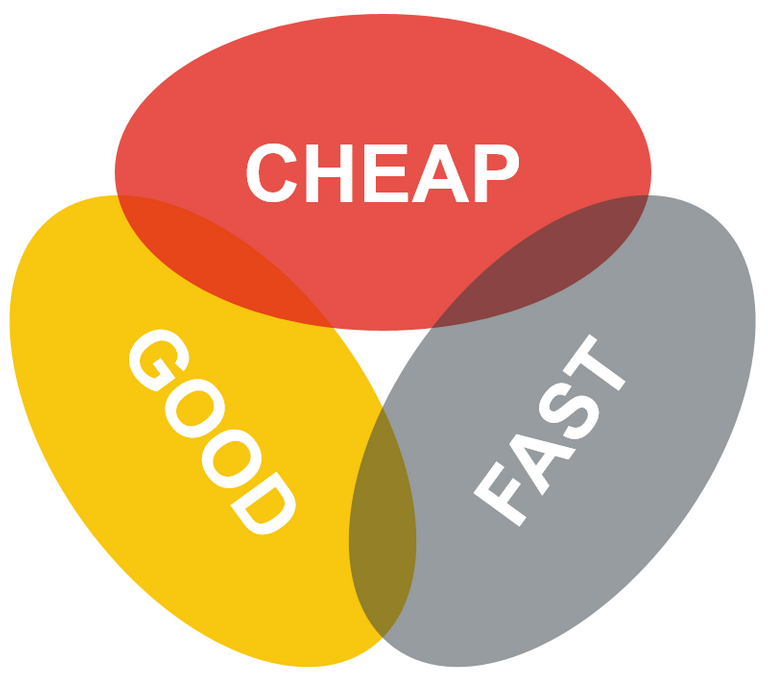Milton Friedman, in his book “Free to Choose“, detailed four ways to spend money:
- You spend your own money on yourself, seeking highest value (good) at least cost (cheap), but taking most of your efforts (not fast).
- You spend your own money on someone else, taking least of your effort (fast) at least cost (cheap), no matter how low the value is (not good)
- You spend someone else’s money on yourself, taking least of your effort (fast) and seeking highest value (good), no matter how high the cost is (not cheap)
- You spend someone else’s money on someone else, taking least of your effort (fast), no matter how high the cost is (no cheap) and/or how low the value is (not good). Even worse, if you don't like someone else, you might take most of your effort (not fast) to seek the least value (not good) at highest cost (not cheap), ...

弗里德曼在他的《自由选择》一书中,解释了四种花钱的方式:
1.花自己的钱办自己的事,少花钱多办事,可能费力费时;
2.花自己的钱给别人办事,少花钱少办事,省力省时;
3.花别人的钱为自己办事,多花钱多办事,省力省时;
4.花别人的钱为别人办事,最不负责任,最坏情况下可能费力费时费钱还不办事。
其中第4种花钱方式常被用来批评政府的花钱方式。对西方国家的政府,甚至中国的地方政府而言,这种批评都是合理的。然而,中国的中央政府的花钱方式实质上介于2和3两种花钱方式之间,甚至在某些情况下是第1种,这可能就是中国效率的答案。